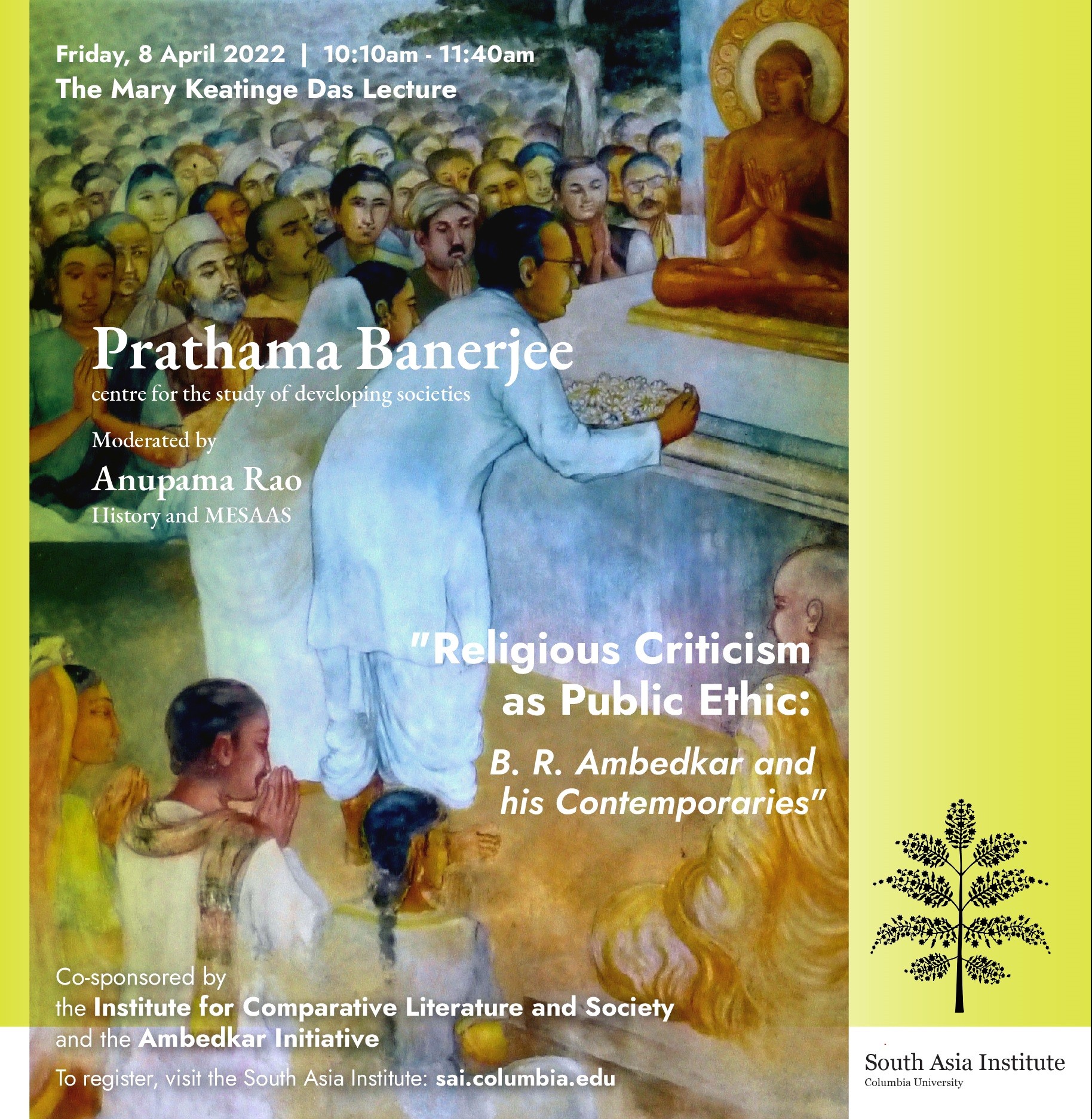The Mary Keatinge Das Lecture
Prathama Banerjee (CSDS)
"Religious Criticism as Public Ethic: B. R. Ambedkar and his Contemporaries"
Moderated by Anupama Rao (History and MESAAS)
Co-sponsored by the Institute for Comparative Literature and Society and the Ambedkar Initiative
Abstract: Religious criticism is unthinkable in modern times. Constitutional morality and public ethic require that we show all religions equal respect. This is because modernity defines religion to be a matter of incontrovertible faith rather than reasoned disputation. In this talk, I return to an early 20th century moment in south Asia, where a number of public intellectuals, most importantly Ambedkar but also others such as Rahul Sankrityayan and Dharmanand Kosambi, argued that religious criticism be seen as a valid public ethic. They drew on longer precolonial histories of religious debates, where evidentiary and critical criteria were routinely invoked, cutting through the modern-day faith/evidence binary. They also thought of religions in the plural - again in line with precolonial histories of religious itinerancy and encounter - rather than of religion as a generic or universal category of thought. By reconnecting this modern moment with older histories, I try to move aside of the two standard ways in which we approach religion as concept and phenomenon today - namely, via the secularisation problematic and/or the political theology framework.
Prathama Banerjee is Professor at the Centre for the Study of Developing Societies, Delhi. She works at the cusp of history, philosophy and literary theory. Her books include The Politics of Time: ‘Primitives’ and History-writing in a Colonial Society (2006) and Elementary Aspects of the Political: Histories from the Global South (2020). She is currently interested in a longe duree history of idioms of social and political criticism in India as well as shifting contours of democratic theory in the digital cum viral contemporary.

